The 14 Best Dry Scalp Treatments, According to Hair Experts
Say goodbye to flakes and itching.

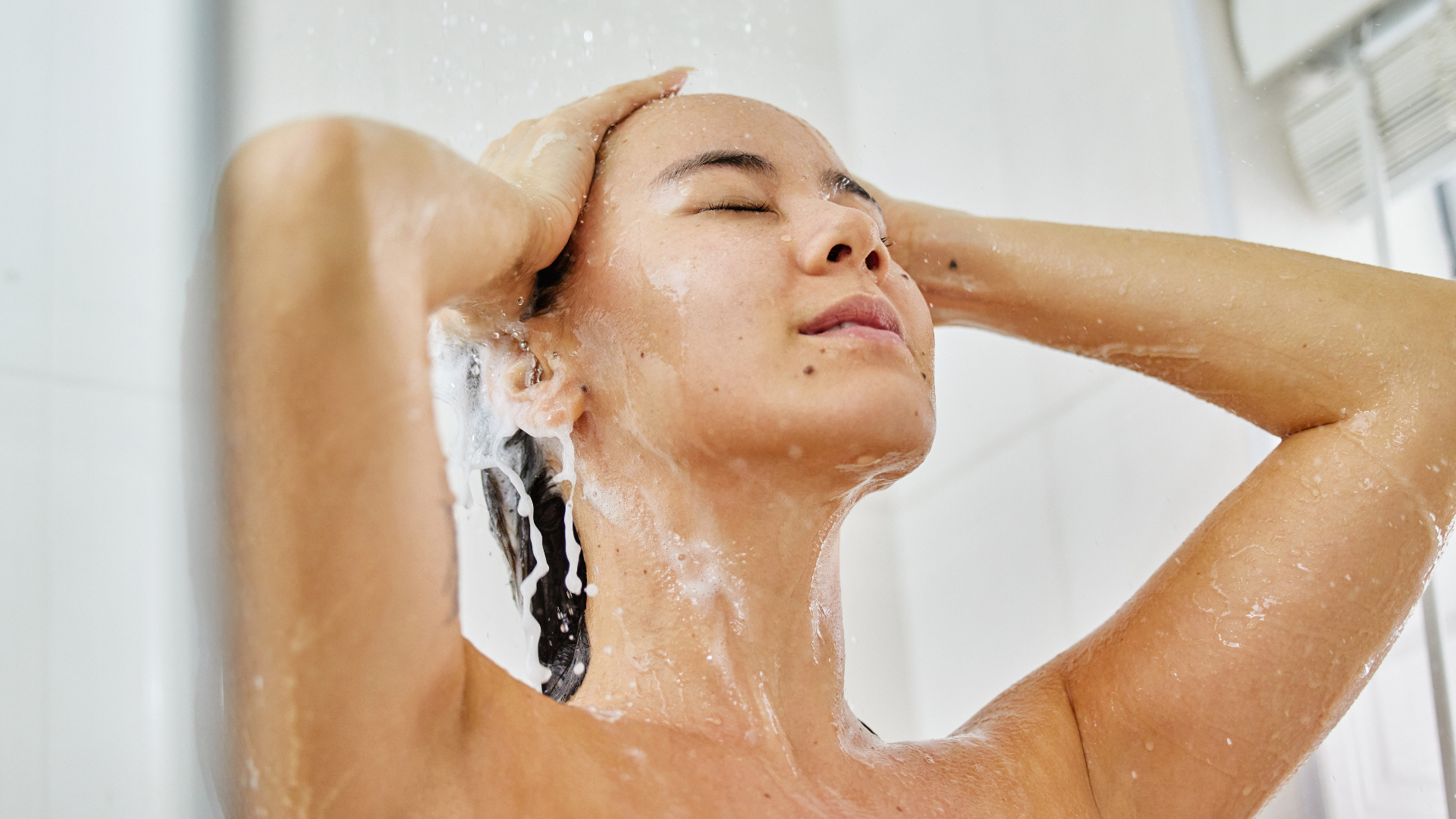
For many of us, the sheer number of products in our bathrooms testifies to the commitment we have to caring for our hair. From high-quality shampoos and conditioners to hair growth oils and leave-ins, we do our very best to ensure that our locks are healthy, shiny, and frizz-free. However, many of us find our efforts thwarted when we're faced with the dreaded issue of a dry, itchy, and often flaky scalp. Not only can this cause unrelenting discomfort, but flakiness can also result in self-consciousness (not to mention a fear of wearing black shirts).
"Dry scalp presents with small dry flakes and an itchy scalp and often coincides with dry skin on other parts of the body," explains Dr. Snehal Amin, MD, co-founder and surgical director of MDCS Dermatology "Basically, a lack of moisture is the cause for the itchy, flaky skin seen with dry scalp. In contrast, with dandruff, the issue is an oily scalp which presents with larger yellow/white oily flakes."
But what causes a dry scalp and, once that dryness comes about, what can we do to fight it? We've consulted Dr. Amin along with Hairstory hairdresser Jennifer Covington-Bowers to learn about what causes scalp irritation, how to prevent it, and what products can be used to treat it.
Best Scrubs for Scalp Irritation
- Best Overall Scalp Scrub for Scalp Irritation: Briogeo Scalp Revival Charcoal + Coconut Oil Micro-exfoliating Scalp Scrub Shampoo
- Best Overall Shampoo for Scalp Irritation: Vanicream Shampoo
- Best Overall Oil for Scalp Irritation: Moroccanoil Dry Scalp Treatment
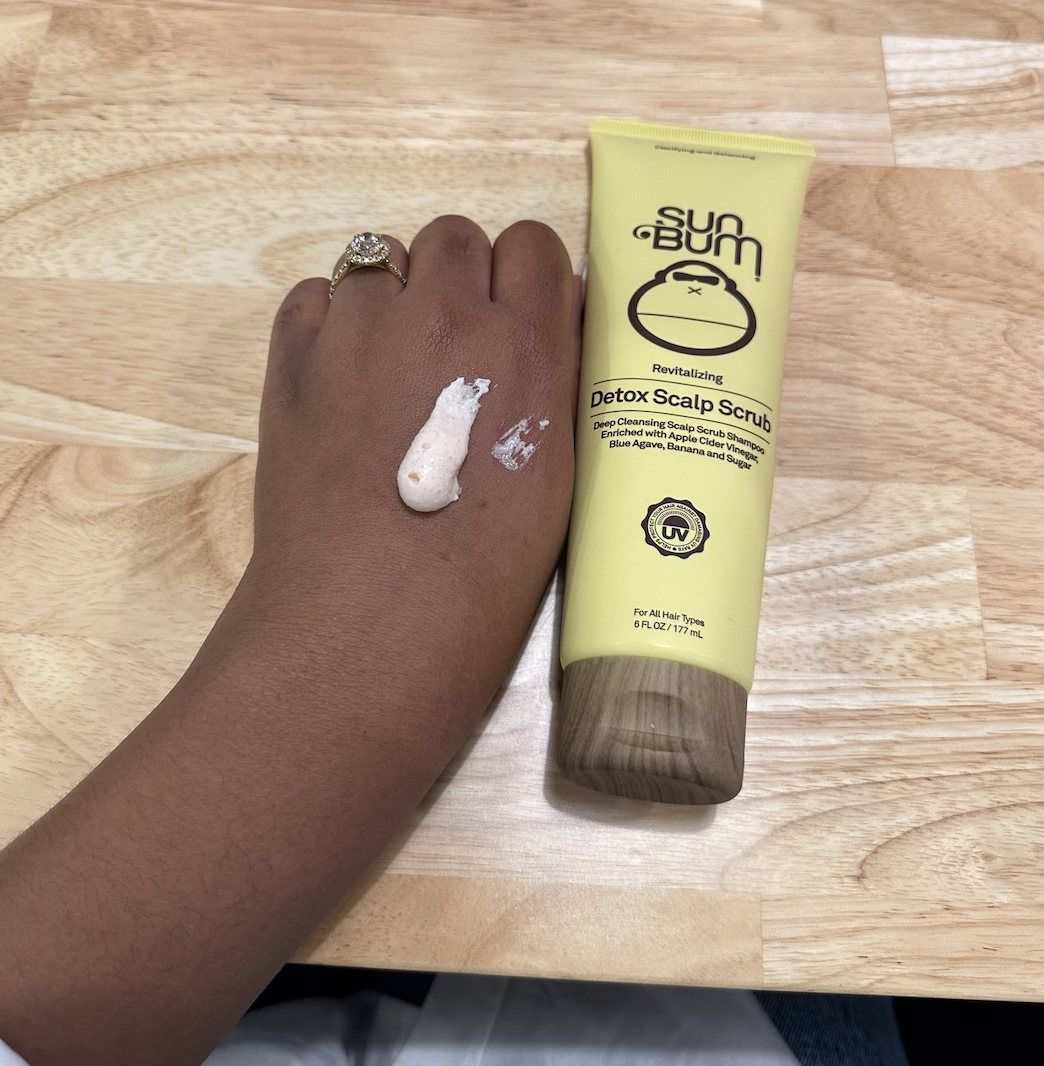
Product Type: Scalp Scrub
Pros: Six fluid ounce weight; squeeze-tube bottle; affordable; cruelty-free; vegan; editor-approved
Cons: Can be difficult to squeeze out of the bottle as the top can sometimes get clogged
Main Ingredients: Apple Cider Vinegar, Blue Agave, Banana, Sugar
Marie Claire Review: "If you're looking for an affordable formula that still manages to pack a punch, look no further than this one from Sun Bum. It's equal parts exfoliating and moisturizing, and it doesn't leave any residue behind post-wash day." — Ariel Baker, Beauty Writer
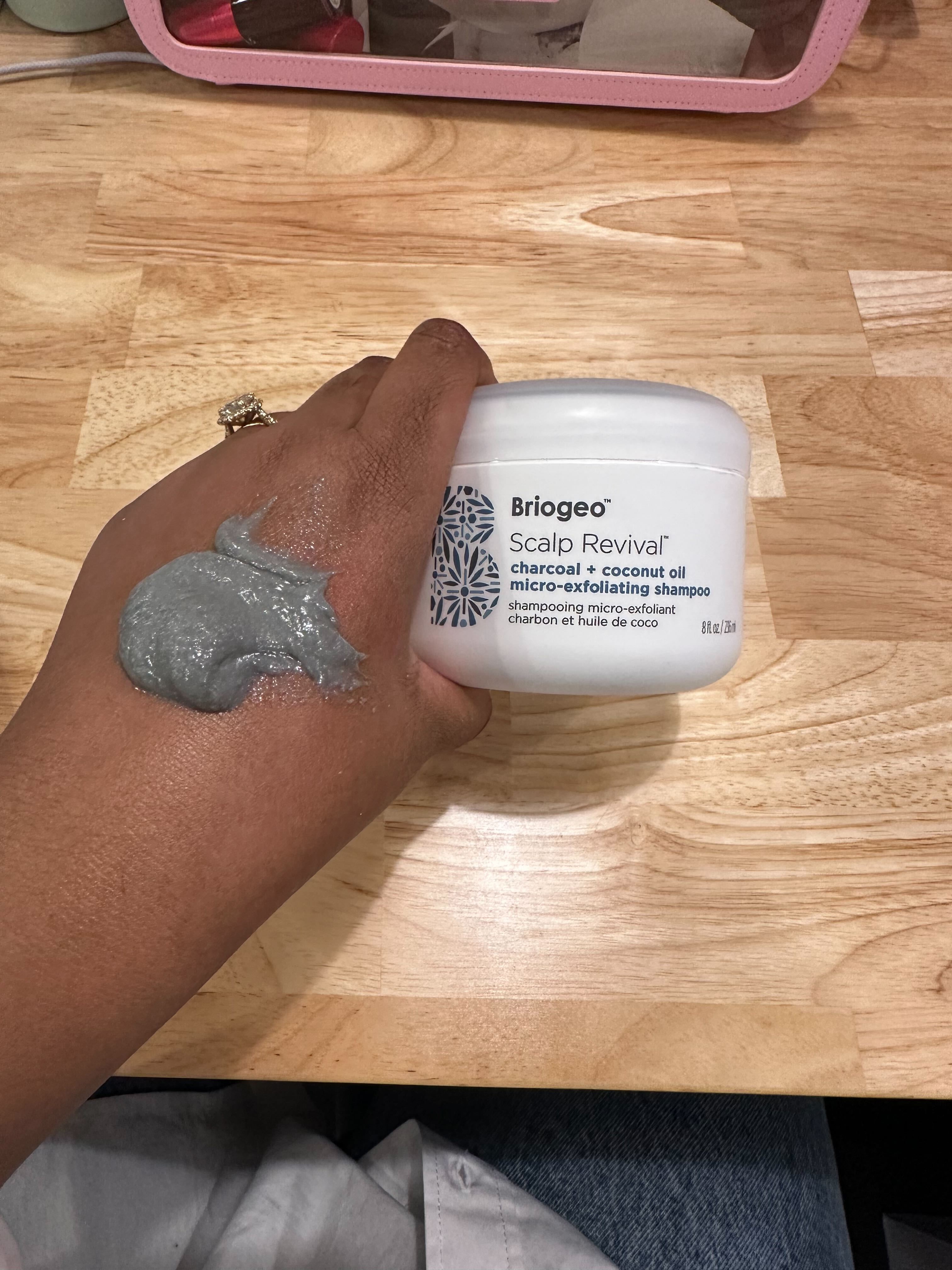
Product Type: Scalp Scrub
Pros: Eight-ounce container; tub packaging with screw-off lid; color-safe; immediate results; isn't drying; clarifying
Cons: High price
Main Ingredients: Binchotan Charcoal, Coconut Oil, Microcrystalline Cellulose
Marie Claire Review: "This line is one of my absolute favorites from Briogeo. With this scrub in particular, not only does it lather beautifully, there's a tingle to it from what I presume is the Spearmint and Peppermint oils in the formula, that I simply can't get enough of." — Ariel Baker, Beauty Writer
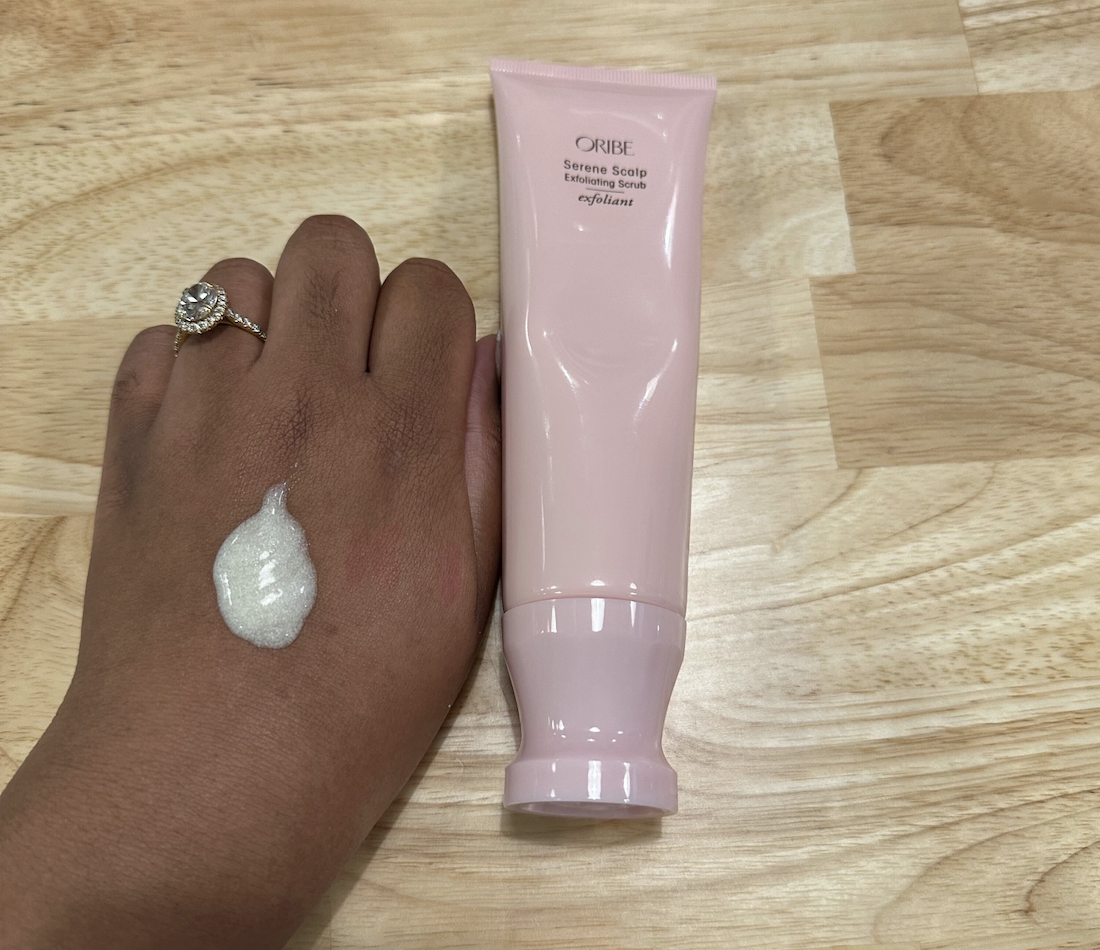
Product Type: Scalp Scrub
Pros: Four-ounce weight; squeeze-tube packaging with targeted applicator; made with sensitive skin in mind; sulfate-free; vegan; expert-approved
Cons: High price; relatively small bottle
Main Ingredients: Alpha Hydroxy Acid Blend, Soft Polymer Beads
Marie Claire Review: "Not only do I love the targeted applicator that this scrub has, but it's also incredibly gentle and almost feels moisturizing when I was using it. It's a far cry from the dry, crumbly formulas I've used in the past." — Ariel Baker, Beauty Writer
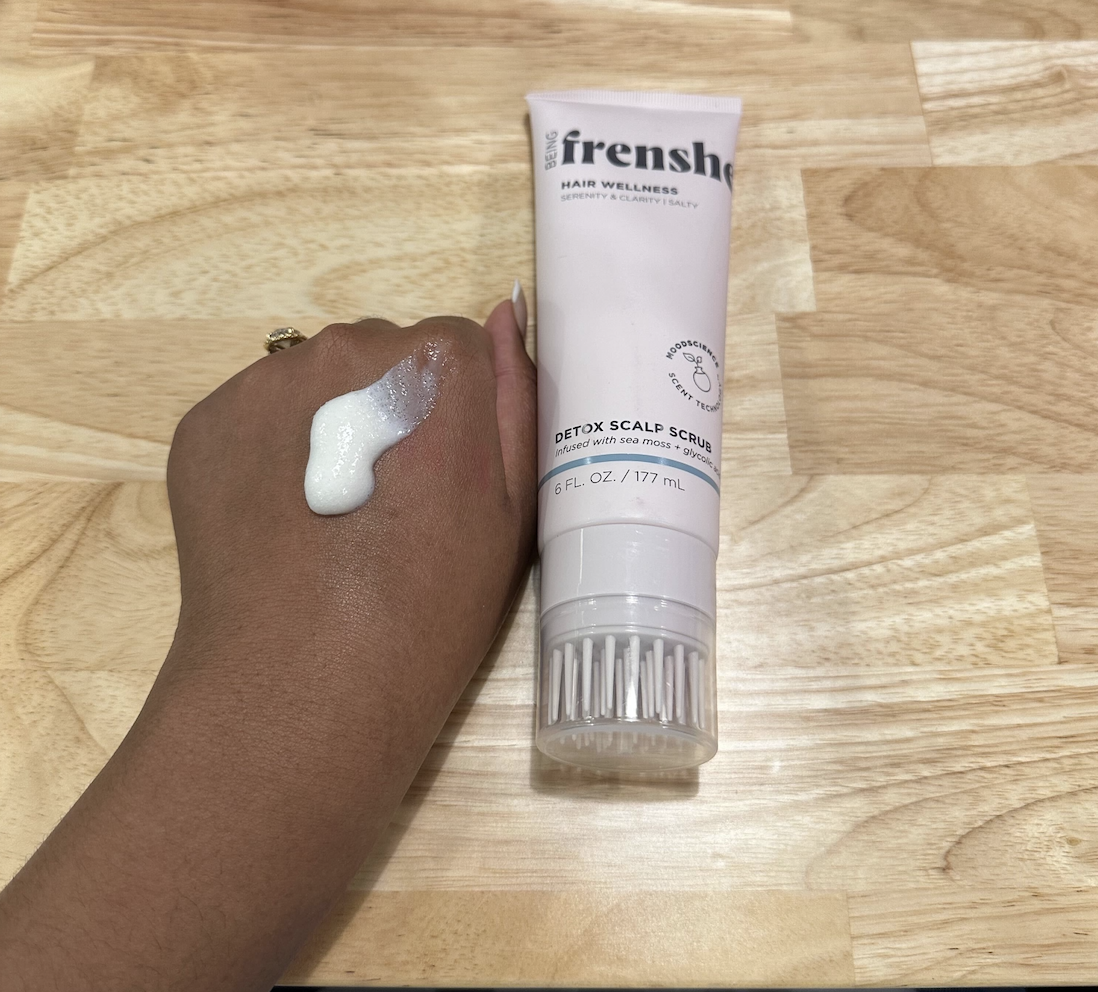
Product Type: Scalp Scrub
Pros: Six fluid-ounce weight; squeeze-tube packaging with built-in scalp tool; suitable for regular use; hydrating; clarifying
Cons: Scalp tool can get a bit tangled on coily hair textures
Main Ingredients: Salt, Glycolic Acid
Marie Claire Review: "If you experience itchy scalp, you know that sometimes your fingers just can't fully get the job done. While I typically have to have a separate tool to make sure I'm really getting at my scalp, this scrub from Being Frenshe has one built into the applicator. It's the perfect wash-day companion." — Ariel Baker, Beauty Writer
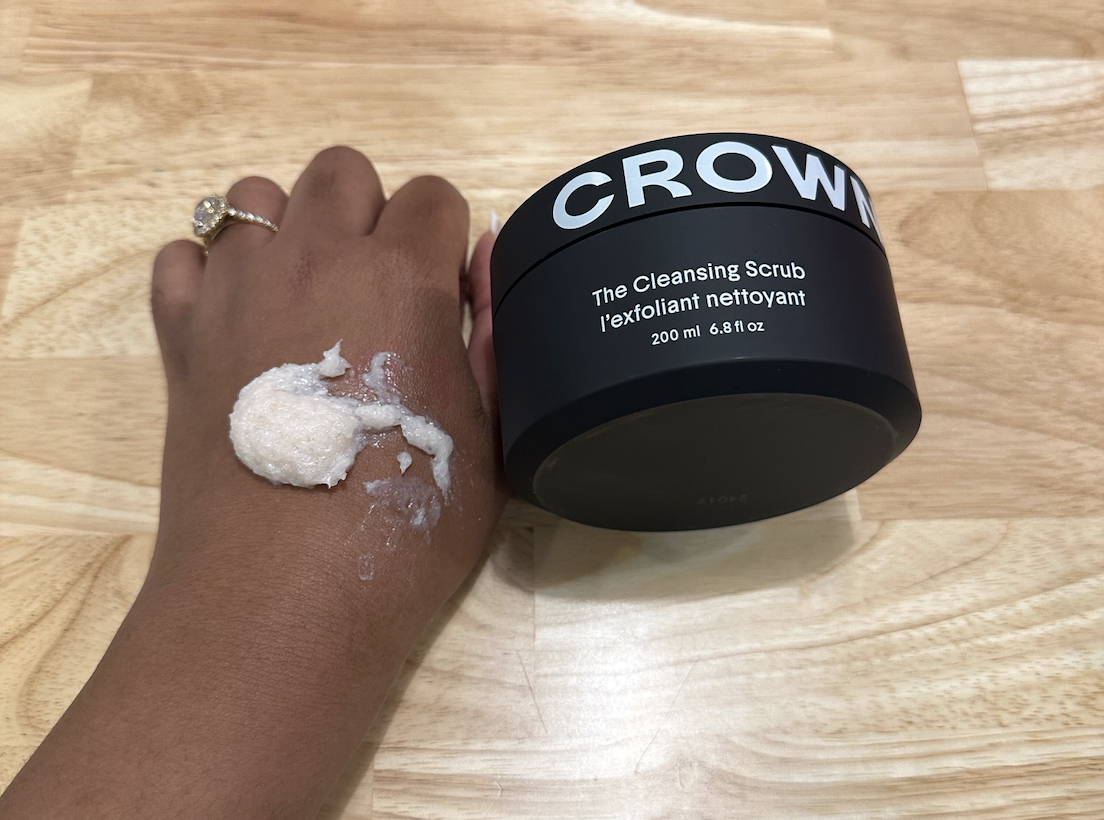
Product Type: Scalp Scrub
Pros: Six fluid ounce packaging; tub packaging with twist-off cap; good for both oiliness and dryness; cruelty-free; works on all hair types; color-safe; affordable
Cons: Strong scent
Main Ingredients: Pink Salt, Tsubaki Seed Oil
Marie Claire Review: "This is one of my favorite scrubs for when I want something a little more gritty and I've pushed wash day a little too far. When you don't want to have to take out any extra hair tools and want your scalp to just feel refreshed and cleansed, the bigger salt crystals in this formula will get the job done instantly." — Ariel Baker, Beauty Writer
Best Shampoos for Scalp Irritation
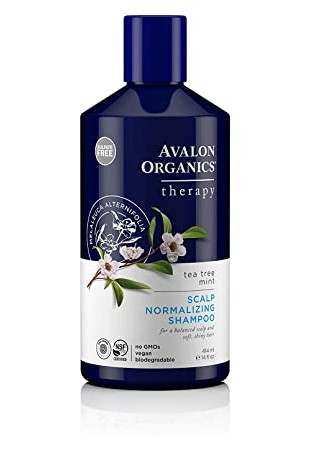
Product Type: Shampoo
Pros: 14 fluid ounce weight; plastic squeeze-tube bottle; editor-approved; contains tea tree oil; soothing; cooling
Cons: Tingling effect may be unpleasant for some; contains sulfates
Main Ingredients: Aloe leaf juice; tea tree oil
Marie Claire Review: "This is another product that I personally swear by. When I got a terrible sunburn on my scalp this summer after going on vacation (use sun hats and sunscreen, people!), my skin started peeling along my part-line, resulting in embarrassing flaking and a scalp that was tender and painful to the touch. This shampoo eased my discomfort and noticeably reduced flaking without stinging my sensitive, ultra-dry scalp. It’s also great for use when your scalp is oily or prone to dandruff, or even for regular use." — Gabrielle Ulubay, Former Beauty Writer
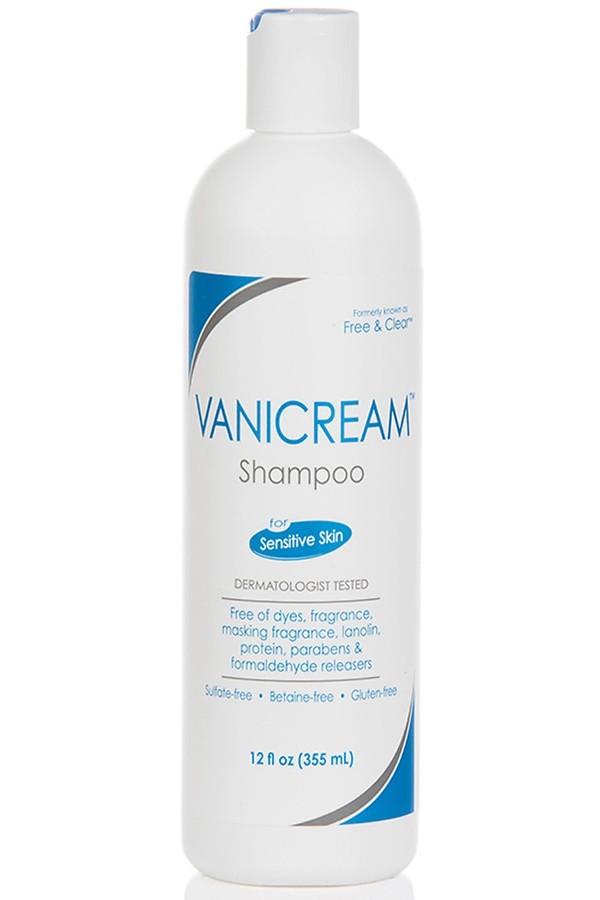
Product Type: Shampoo
Pros: Paraben-free; twelve fluid ounce weight; plastic squeeze-tube bottle; gluten-free; dermatologist-recommended; sulfate-free; made for sensitive skin; affordable
Cons: Contains pentylene glycol, which can be a mild irritant for some
Main Ingredients: Lauryl glucoside; glycerin
Marie Claire Review: "Shampoos are often the culprit behind dry scalp," says Dr. Amin. "Try switching to this super gentle formulation, which is free of fragrances, parabens, sulfates, and other harsh ingredients."
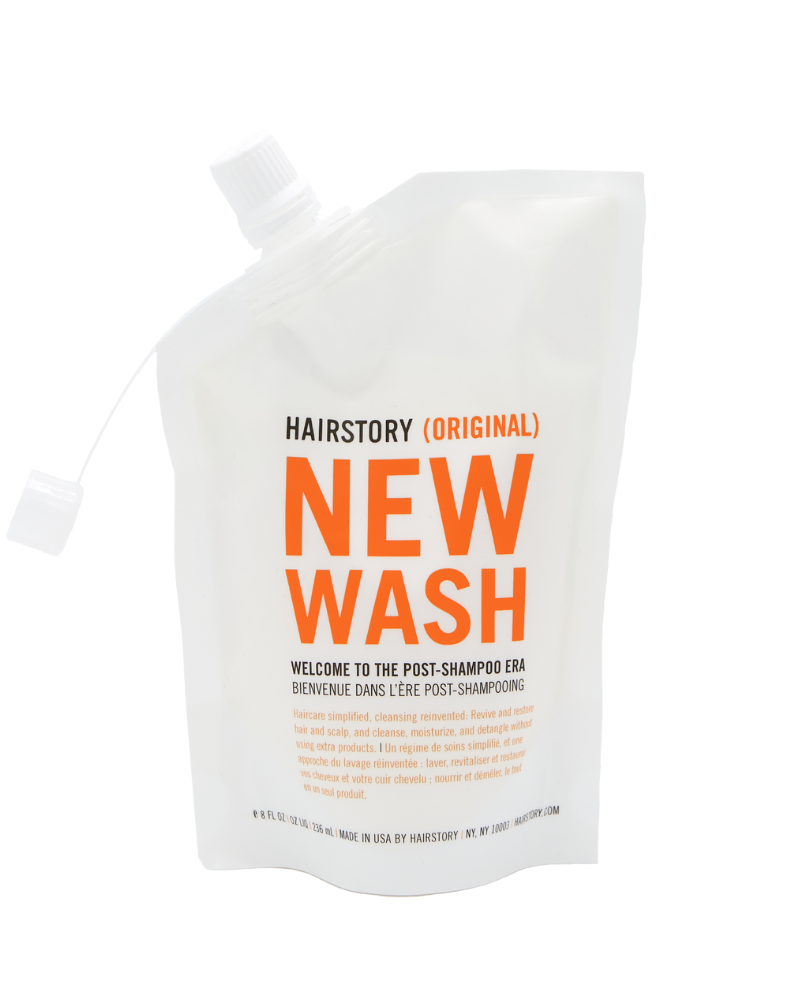
Product Type: Shampoo
Pros: Eight fluid ounce weight; recyclable plastic-bag packaging; balancing; expert-approved; works on all hair types
Cons: High price
Main Ingredients: Glycerin, aloe-leaf juice, evening primrose oil
Marie Claire Review: "This formula cleans and conditions gently and safely with essential oils instead of harsh cleansers," says Dr. Covington-Bowers. "It is meant to keep the integrity of the scalp in balance, so you’ll no longer need to worry about flakiness, dandruff, scalp acne, or clogged pores."
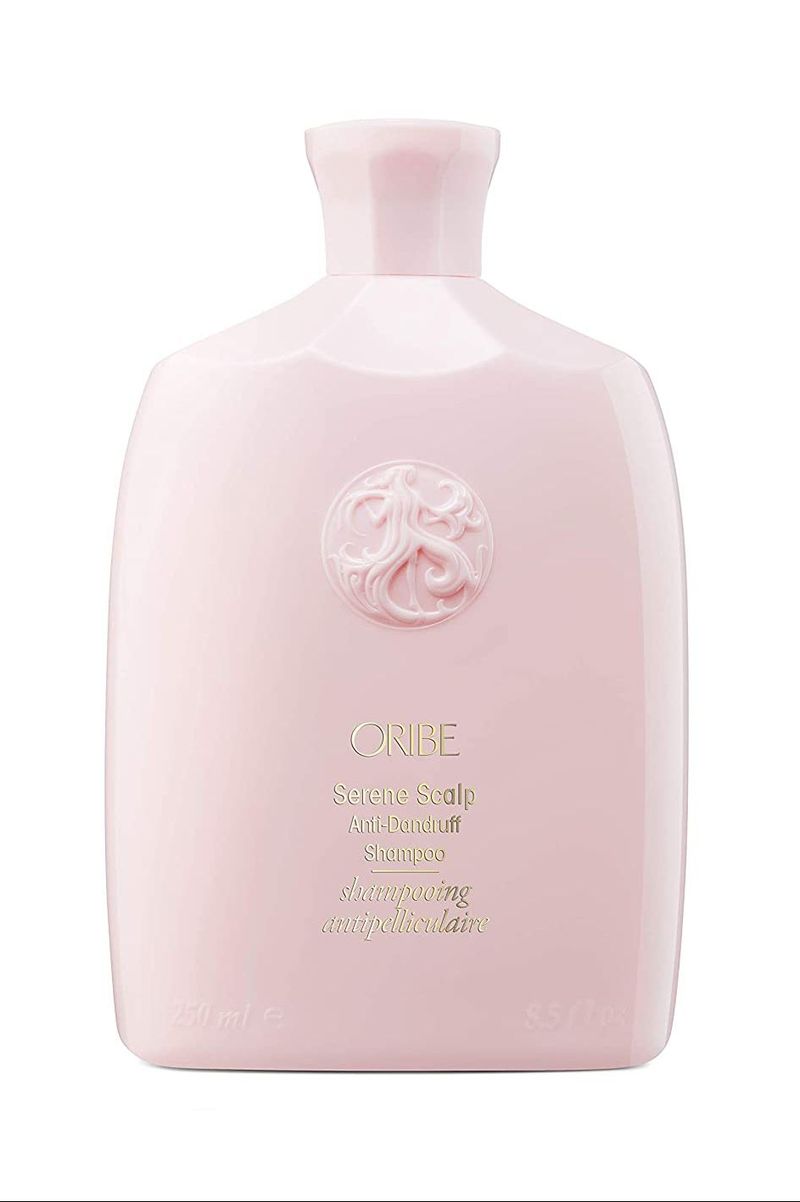
Product Type: Shampoo
Pros: Eight fluid ounce weight; aesthetically pleasing packaging; plastic squeeze bottle; keratin-safe; effective
Cons: High price; exfoliant may sting for some
Main Ingredients: Salicylic Acid
Customer Review: "As someone who deals with dandruff and itchy dry scalp, this has been one of the only products that actually worked. It relieves the itchy, gets rid of the flakes, and smells amazing! I use it once weekly and it always does the job." -Dermstore
Best Oils for Scalp Irritation
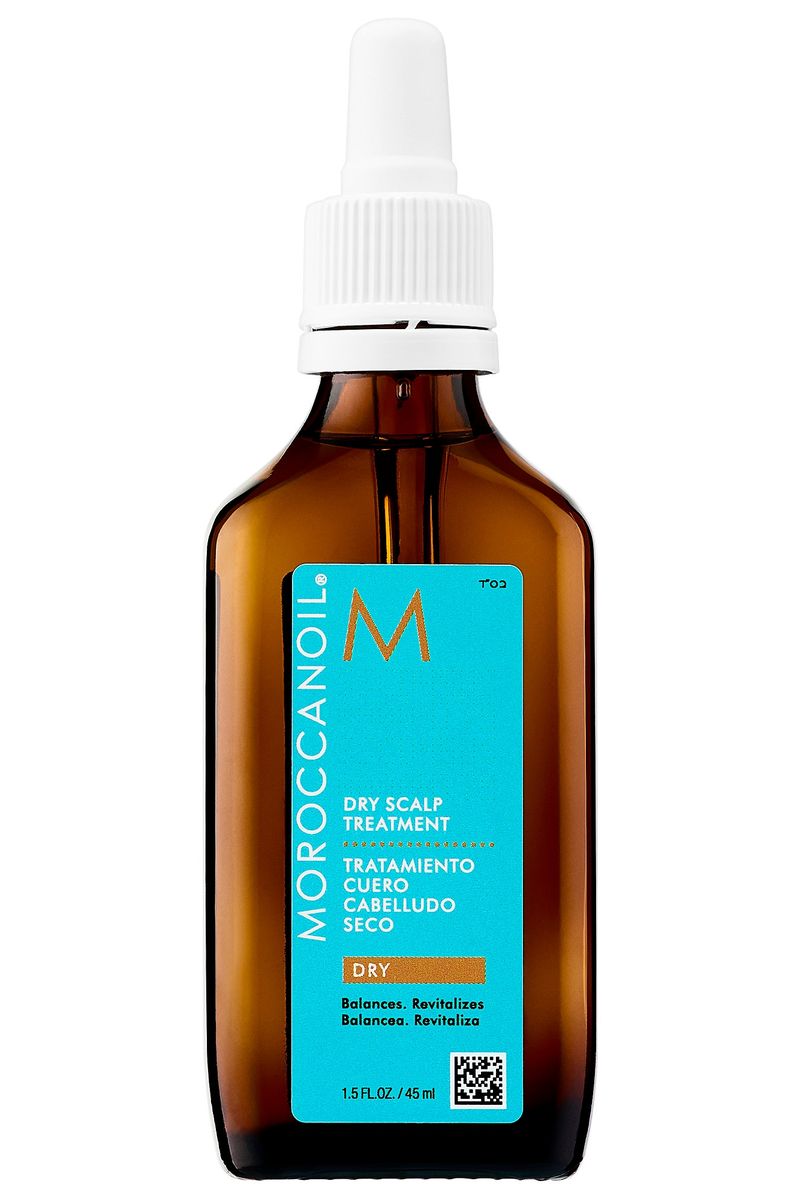
Product Type: Scalp Oil
Pros: Fresh scent; one fluid ounce weight; recyclable glass bottle; long-lasting; includes argan oil; includes salicylic acid to combat acne and oiliness
Cons: high price
Main Ingredients: Salicylic acid, vitamin E, argan oil
Marie Claire Review: "I'm a huge fan of Morrocanoil's products for both their efficacy and for their signature clean, powder-fresh scent. This product in particular makes my scalp feel hydrated and soft without making my roots look greasy, and it tames disorderly baby hairs and flyaways without resulting in the crunchy feel of a gel. The formula contains salicylic acid, making it perfect for those with oily, acne-prone scalps, but it also contains hydrating ingredients like argan oil, making suitable for reducing dryness and flaking." — Gabrielle Ulubay, Former Beauty Writer
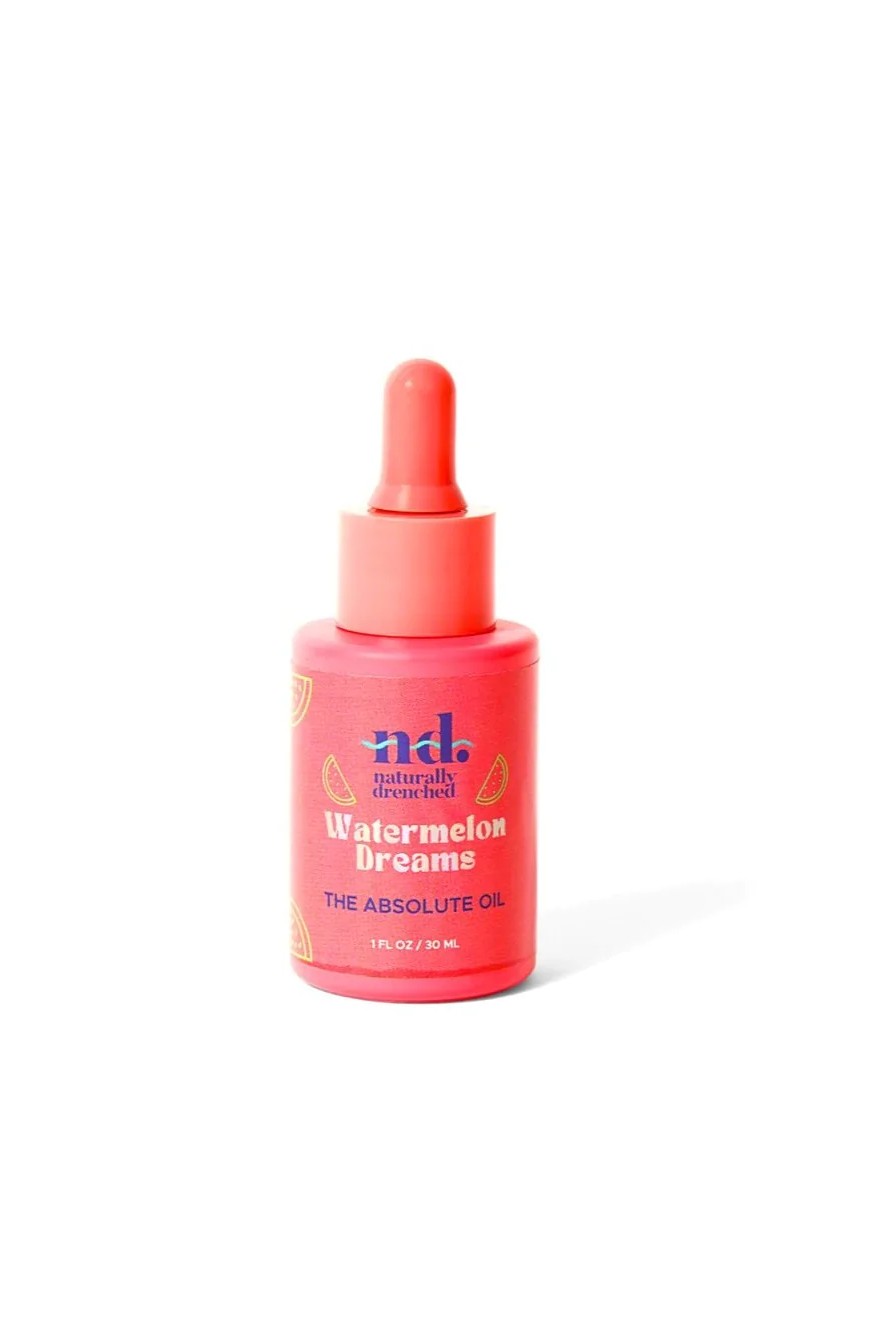
Product Type: Shampoo
Pros: Black-owned brand; one fluid ounce; dropper packaging; natural ingredients; editor-approved
Cons: Small bottle; high price
Main Ingredients: Kalahari melon seed oil
Marie Claire Review: "I love this oil from Black-owned hair brand Naturally Drenched. It features natural ingredients and is lightweight enough to use daily. Not only do I use it to massage my scalp for better hair growth, but I also carry it in my purse to revitalize my hair on particularly frizzy days. It’s perfect for taming annoying flyaways and baby hairs, for smoothing down a slicked-back style, and for hydrating my lengths and ends. And because it’s so small, it’s the perfect TSA-friendly hair option to pack on vacation." — Gabrielle Ulubay, Former Beauty Writer
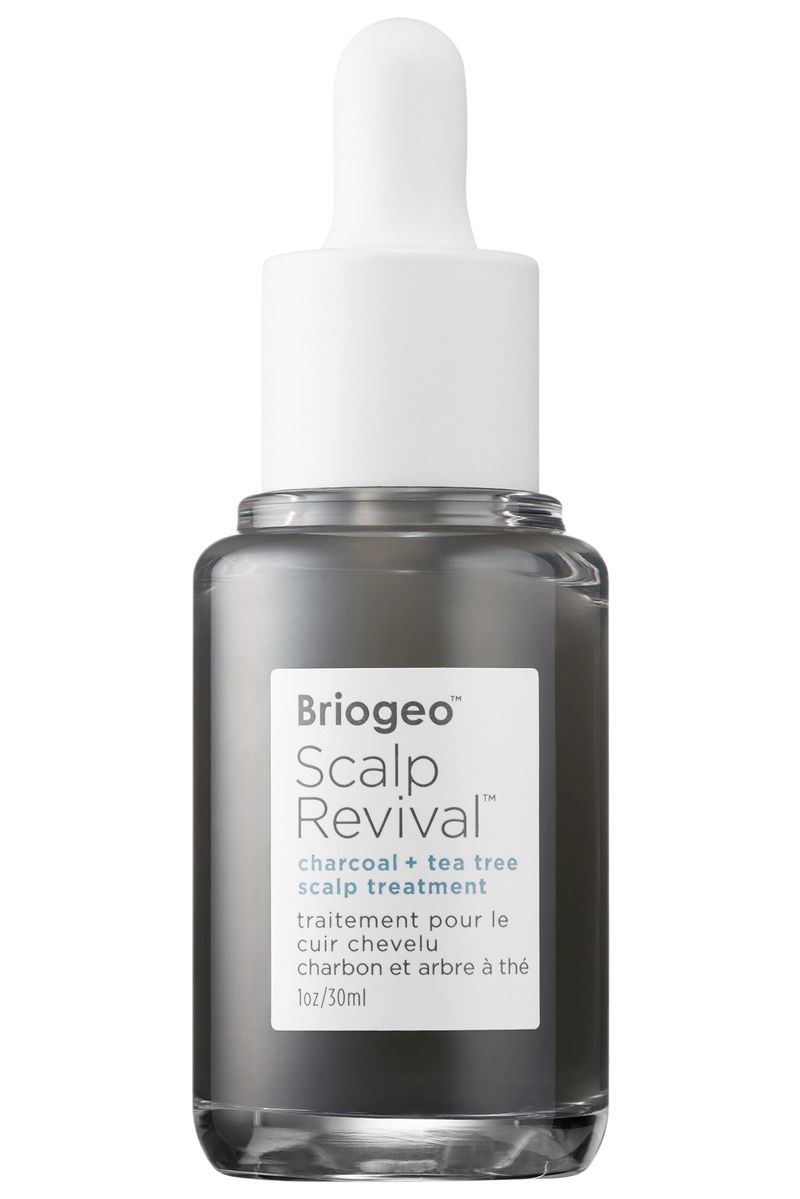
Product Type: Scalp Oil
Pros: Works on all hair types; clarifying; gluten-free; clean at Sephora
Cons: High price for a small bottle
Main Ingredients: Witch hazel; charcoal; tea tree
Customer Review: "Plant-based ingredients like peppermint and tea tree oil in tandem with clarifying elements like charcoal and witch hazel create one of the best scalp oils that I've ever used. The result is a balancing, soothing product that halts discomfort by removing impurities and buildup from the scalp." — Ariel Baker, Beauty Writer
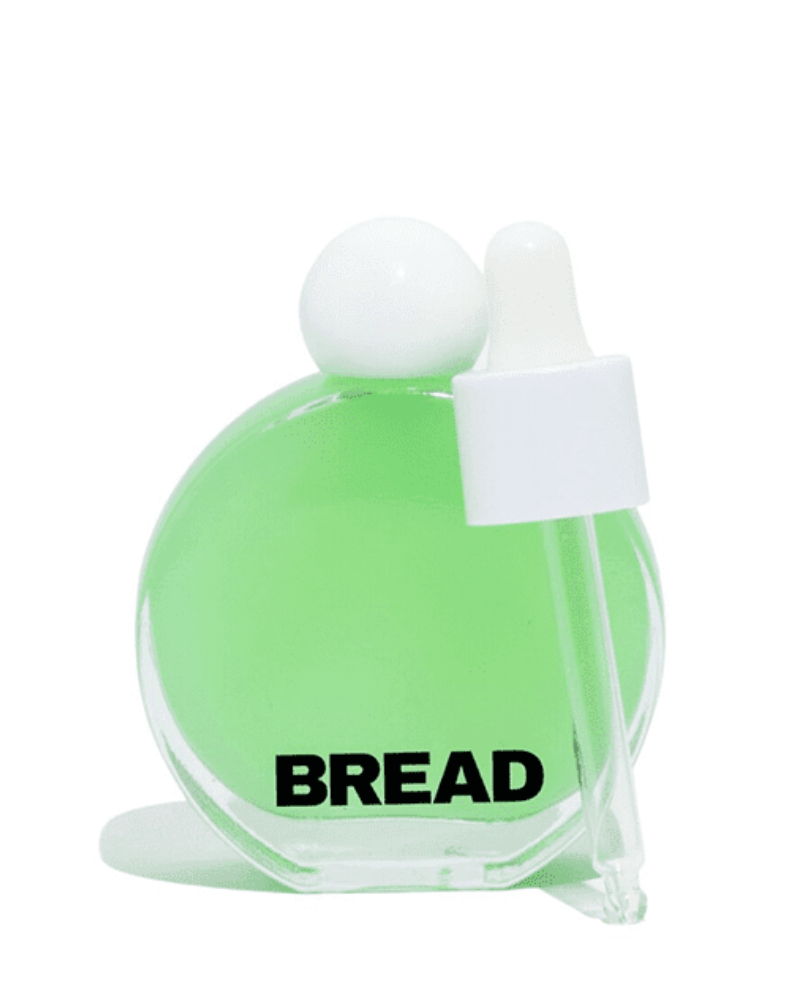
Product Type: Scalp Oil
Pros: Good for sensitive skin; one fluid ounce weight; glass dropper packaging; works well with natural hair; stimulates hair growth and thickening
Cons: Cooling effect can be polarizing among customers
Main Ingredients: Eucalyptol, mandelic acid and gluconolactone, chinaberry extract
Customer Review: "I bought a few different scalp serums to try because i was desperate. This was the winner by a long shot. I actually felt and saw results, my dry, tired scalp loved this, and I didn’t get overly oily after either!!" -Sephora
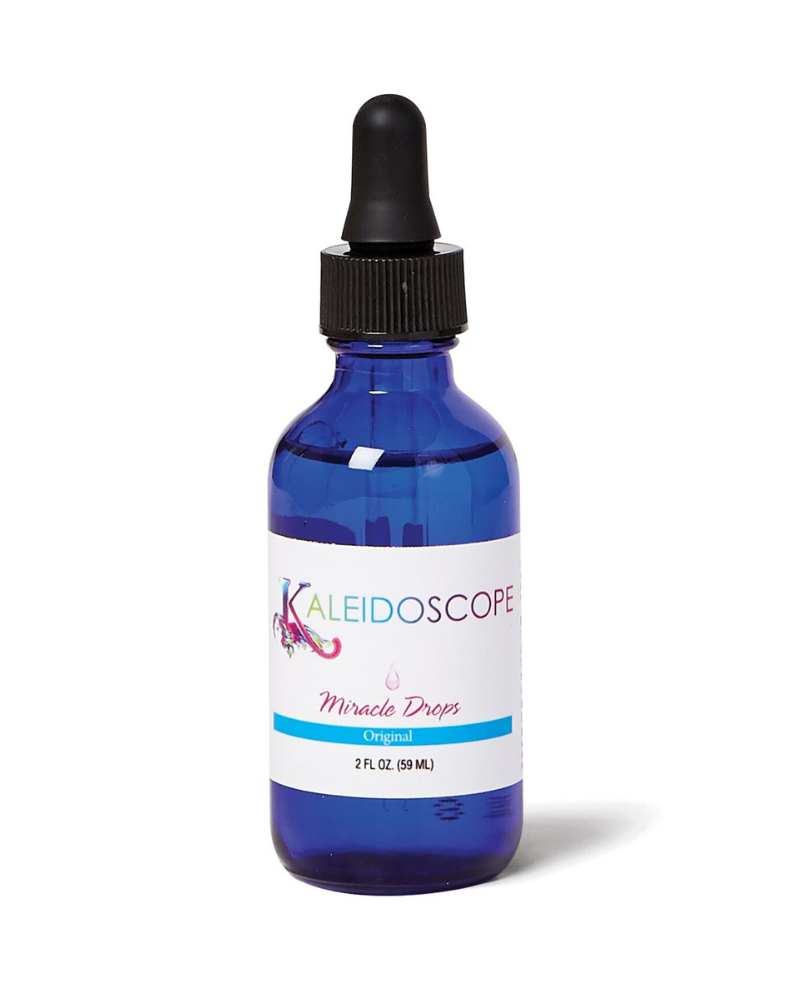
Product Type: Scalp Oil
Pros: Immediate results; two fluid ounce weight; glass dropper packaging; affordable; lightweight; enhances hair shine
Cons: Small bottle
Main Ingredients: Tea tree oil, aloe vera
Customer Review: "Tried the drops when my daughter purchased and I am completely impressed. I am a retired hairstylist and I can assure you, you will not regret trying these drops. My hair is growing so quickly that even my family and friends have noticed. And [my hair is] definitely healthier." — Amazon
What Causes a Dry, Irritated Scalp?
"Hair care products, dry, cold winter weather and aging are all potential etiologic factors for this condition," says Dr. Amin. "Shampoos and other hair care products can deplete the hair of oils, leaving the scalp feeling stripped and irritated. The skin of the scalp ages just as it does on the rest of your body. Aging skin, including on the scalp, is more dry and less able to hold moisture."
Covington-Bowers adds that skin conditions such as scalp psoriasis and eczema can also aggravate one's scalp. She continues, “Other triggers include environmental factors, certain hair products, hormonal changes, dietary triggers, excessive washing, and genetics.” One can also be diagnosed with seborrheic dermatitis (seb derm), which results in inflamed, scale-like patches on the scalp.
If you're concerned about scalp irritation and want to get to the bottom of the issue, both of our experts stress the importance of seeing a physician who can give you a proper diagnosis. "It is important to note that a dry, itchy, and even flaky scalp can be a symptom of many different medical conditions. The underlying cause can be infectious, inflammatory, or even neoplastic in nature," says Dr. Amin. "The first step is actually to see your dermatologist to confirm the correct diagnosis."
How to Prevent Scalp Irritation
Anxious about scalp irritation and eager to avoid it? Us, too. And while dandruff, itching, and dryness are relatively common problems, there are several means of maintaining good scalp health in order to prevent them.
First and foremost, Dr. Amin says to keep an eye on the ingredients in your hair care products, listing sulfates, parabens, formaldehyde, silicone, and fragrance as the most important components to avoid. He explains, "Sulfates are foaming agents which are harsh and deplete the hair of oils. The ingredient which may not be as intuitive of a problem is silicone, [which] coats the hair and gives it sheen." However, he says that silicones "repel water and keeps the hair and scalp from getting the moisture it needs." Finally, he says, "Parabens and formaldehydes are preservatives which are absorbed by the skin and cause allergies and irritations."
Meanwhile, Covington-Bowers advises her clients to avoid irritating their scalps by washing their hair too frequently. “When we over-wash our hair it strips the natural oils that we need to keep both the hair and scalp hydrated," she says.
Treating Scalp Irritation
If you're struggling with a dry, flaky, or otherwise irritated scalp, don't worry: Relief is within reach. In addition to switching out any damaging hair products for gentler ones, Dr. Amin recommends introducing new products into your haircare regimen, such as a scalp scrub.
"Scalp scrubs are exfoliants that are used to boost the health of the scalp by removing product build-up," explains Dr. Amin, adding that scrubs also "invigorate hair follicles clogged by accumulation of dead cells, dirt, and debris. This helps alleviate dry scalp by allowing the hair and scalp's natural oils to come through. If you have dandruff, scalp scrubs are also helpful in removing overgrowth of yeast."
I, too, use a scalp scrub as needed, but I'll admit that application feels tricky at first—particularly if you have long hair. For that reason, we asked Dr. Amin for a bit of help.
"Scrub treatments are focused on the scalp, so the product should be placed on the head, gently massaged with small circular motions, and then rinsed," he says. "Do this after shampooing, while the hair is still wet. For people with a dry scalp, try adding this to your routine once every other week. Over-exfoliating can be damaging, so it is important not to overdo it."
Additionally, it's important to stay on top of your supplement game when trying to keep your scalp in tip-top shape. One of my favorites? Fatty15's C15:0. "Fatty15 contains a molecule called pentadecanoic acid, which is a type of fatty acid that is thought to play a role in improving the skin's lipid barrier," says dermatologist Dendy Engleman, M.D., FACMS, FAAD. "This barrier is particularly important for locking in moisture as well as protecting the skin from external stressors and irritants, which is an essential part of maintaining scalp and skin health." In short, fatty acids help to fortify the skin (and by extension, the scalp), making it less prone to adverse conditions.
"It is also thought that this fatty acid has anti-inflammatory properties, which could potentially help reduce potential triggers for many scalp conditions, such as psoriasis," Dr. Engelman adds. "Fatty acids are key to achieving a balanced scalp because they play a foundational role in promoting skin hydration while also balancing sebum production." With that being said, supplements aren't one size fits all and what works for me may not work for you. Be sure to consult your doctor before starting any new ingestibles.
Why Trust Marie Claire
Marie Claire is an authority in the hair-care space discussing everything from hair-growth methods, safe styling, and more, all backed by expert medical commentary.
Meet the Experts

Dr. Snehal Amin is a board-certified dermatologic surgeon and dermatologist. He graduated from Harvard College, Albert Einstein College of Medicine, and Cornell-New York Hospital Dermatology Residency, and went on to serve as Director of Mohs, Laser and Dermatologic Surgery at New York Medical College. Since then, he has founded MDCS Dermatology: Medical Dermatology and Cosmetic Surgery in New York City and started teaching as a Clinical Assistant Professor of Dermatology at New York Presbyterian Hospital and Weill Cornell Medical College.
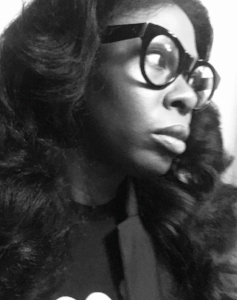
Jennifer Covington-Bowers is a hairstylist and colorist based in New York City. In addition to working with private clients, she has assisted fashion photographers, beauty brands, and have been on beauty teams at New York Fashion Week.
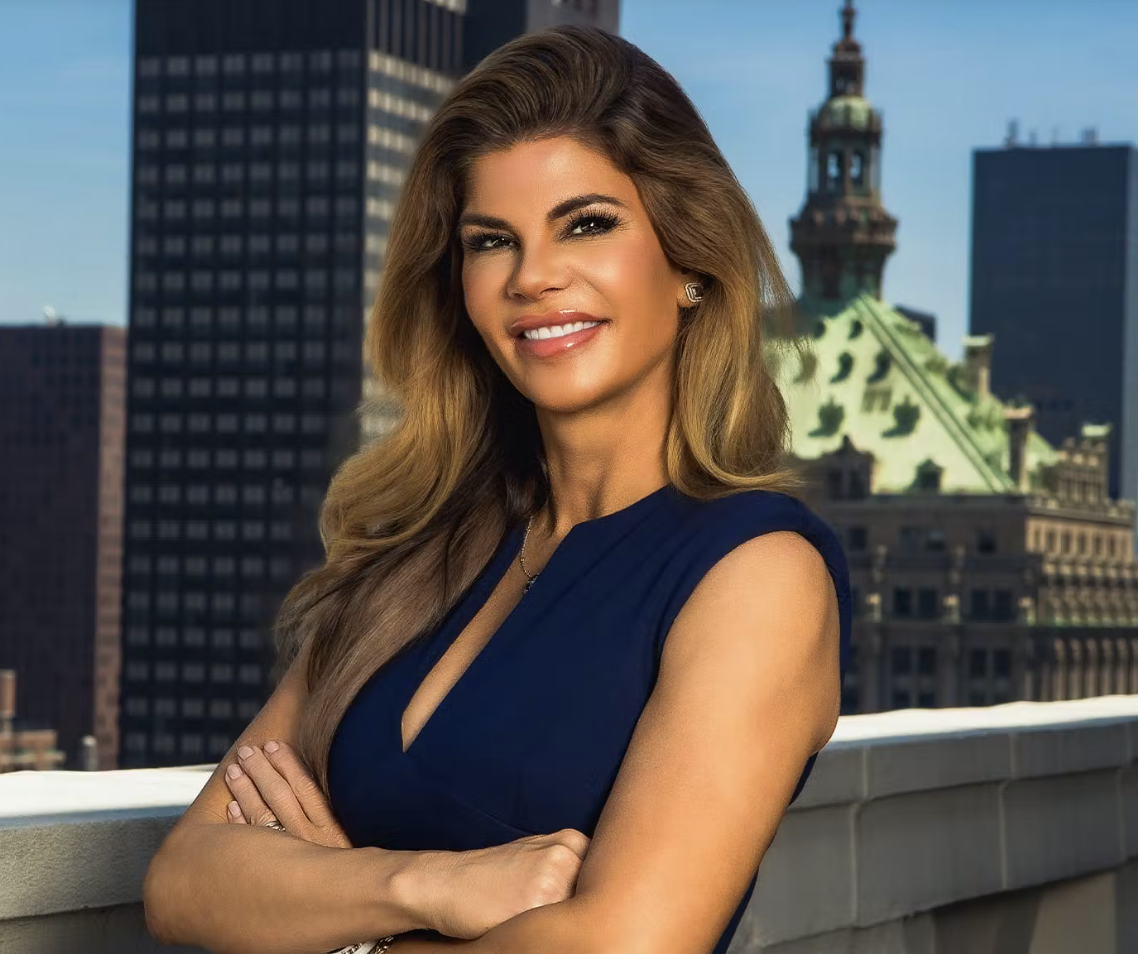
Dr. Dendy Engelman is a board-certified dermatologist known for her expertise in cosmetic and surgical dermatology, specializing in advanced skin treatments and patient care.
Get exclusive access to fashion and beauty trends, hot-off-the-press celebrity news, and more.

Gabrielle Ulubay is a Beauty Writer at Marie Claire. She has also written about sexual wellness, politics, culture, and fashion at Marie Claire and at publications including The New York Times, HuffPost Personal, Bustle, Alma, Muskrat Magazine, O'Bheal, and elsewhere. Her personal essay in The New York Times' Modern Love column kickstarted her professional writing career in 2018, and that piece has since been printed in the 2019 revised edition of the Modern Love book. Having studied history, international relations, and film, she has made films on politics and gender equity in addition to writing about cinema for Film Ireland, University College Cork, and on her personal blog, gabrielleulubay.medium.com. Before working with Marie Claire, Gabrielle worked in local government, higher education, and sales, and has resided in four countries and counting. She has worked extensively in the e-commerce and sales spaces since 2020, and spent two years at Drizly, where she developed an expertise in finding the best, highest quality goods and experiences money can buy.
Deeply political, she believes that skincare, haircare, and sexual wellness are central tenets to one's overall health and fights for them to be taken seriously, especially for people of color. She also loves studying makeup as a means of artistic expression, drawing on her experience as an artist in her analysis of beauty trends. She's based in New York City, where she can be found watching movies or running her art business when she isn't writing. Find her on Twitter at @GabrielleUlubay or on Instagram at @gabrielle.ulubay, or follow her art at @suburban.graffiti.art